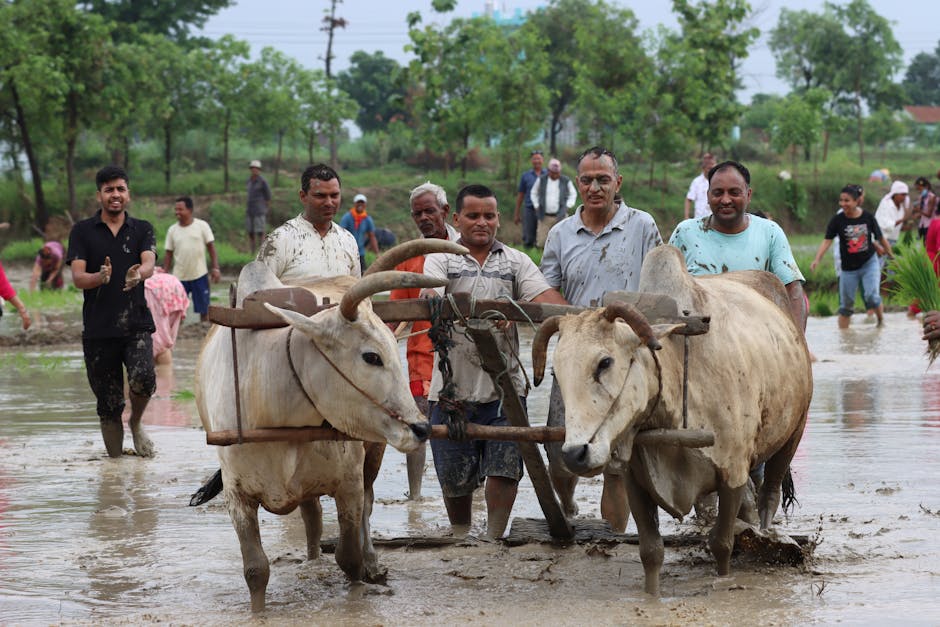Agricultural practices worldwide are facing increasing pressure to adapt to a changing climate. Water scarcity is becoming a significant constraint for farmers, necessitating innovative strategies for improved water usage efficiency. This article delves into crucial methods and technologies that farmers can implement to reduce water consumption without compromising crop yields.
A crucial aspect of enhancing water use in farming lies in comprehending the existing water consumption patterns. Current irrigation systems often suffer from inefficiencies, leading to significant water losses through evaporation, runoff, and deep percolation. Understanding these losses is the first step in implementing effective solutions. Factors like soil type, climate conditions, and crop water requirements heavily influence optimal irrigation strategies.
Precision irrigation techniques represent a significant advancement in water management. Strategies like drip irrigation, micro-sprinklers, and subsurface drip systems are designed to deliver water directly to the roots of plants, minimizing evaporation and runoff. These techniques not only save water but also can improve nutrient uptake, reducing fertilizer needs. Drip irrigation, particularly, delivers water precisely where it’s needed, at a rate tailored to the specific plant requirements, reducing wastage and promoting healthier plant growth. Careful consideration of the topography of the land is crucial for implementing these systems effectively. Slope-specific designs can also prevent the wasteful runoff of irrigation water.
Beyond technological advancements, effective water management hinges on sound agricultural practices. Crop selection plays a vital role in reducing water consumption. Choosing drought-tolerant varieties can significantly lower water demands, making farming more sustainable in arid and semi-arid regions. Planting crops in suitable seasons, considering the prevailing climatic conditions and crop growth cycles, is also paramount. Farmers must also optimise planting density, ensuring an appropriate spacing between plants for both efficient water use and optimal crop development.
Soil health plays a critical role in water retention and utilization. Healthy soils are better equipped to hold water, reducing the need for frequent irrigation. Implementing practices such as cover cropping, crop rotation, and composting can enhance soil structure and water-holding capacity. These practices, in addition to maintaining soil organic matter, are proven to improve soil permeability and water infiltration rates. Appropriate soil testing can also guide farmers in understanding the specific needs of their soil and tailor their irrigation practices accordingly.
Innovative technologies further enhance efficiency. Remote sensing techniques, for instance, can provide real-time data on soil moisture levels. This information allows farmers to precisely monitor crop water requirements, enabling them to schedule irrigation more effectively and avoid unnecessary water applications. This data-driven approach reduces wastage and ensures that each crop receives the precise amount of water needed at the appropriate time. Sensors can also measure evapotranspiration rates, providing further information to optimize irrigation schedules.
Water harvesting techniques are critical for regions experiencing water scarcity. Constructing rainwater harvesting structures like ponds and tanks can capture and store rainwater for later use during dry periods. This is an exceptionally effective strategy for reducing reliance on groundwater sources. Techniques for capturing and storing runoff water also contribute to conserving water resources.
Efficient irrigation scheduling is crucial. This involves using weather forecasts, soil moisture sensors, and evapotranspiration models to create customized irrigation schedules. Instead of relying on fixed irrigation schedules, adaptable schedules based on actual field conditions will lead to significant savings. Understanding the water requirements of specific crops at different growth stages is essential in this process.
Educational initiatives play a pivotal role in promoting water conservation in agriculture. Workshops, training programs, and awareness campaigns can empower farmers with knowledge and skills to implement efficient water-saving techniques. Sharing best practices among farmers through collaborative platforms can also foster knowledge exchange and accelerate the adoption of sustainable water management strategies. Government incentives and subsidies can also provide crucial financial support to farmers implementing these practices.
Economic factors must also be considered. Efficient irrigation systems may require initial investments, but the long-term savings in water costs, increased yields, and reduced environmental impact often outweigh the upfront expenses. Partnerships between farmers, researchers, and policymakers are crucial in developing and implementing cost-effective technologies and practices.
By embracing a multi-faceted approach, farmers can considerably improve their water usage efficiency in agriculture. Combining innovative technologies, sound agricultural practices, and a commitment to learning and adapting will pave the way for a more sustainable and resilient agricultural sector. Ultimately, this approach will ensure food security while minimizing environmental impact, making farming more profitable and preserving valuable water resources for future generations.












